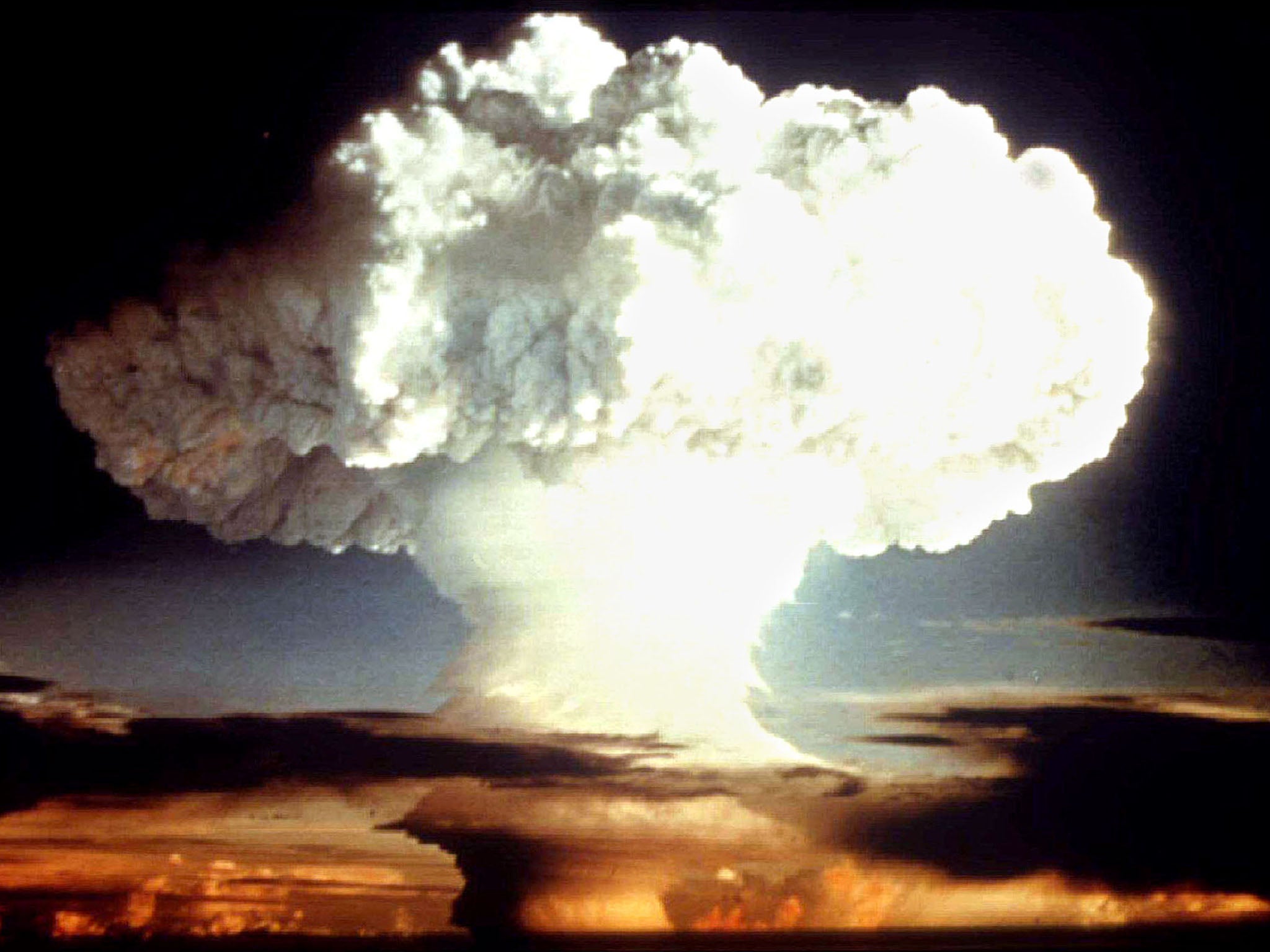Atom bomb survivors in Japan welcome UN resolution on nuclear weapons
'I have been waiting for this day for seven decades and I am overjoyed that it has finally arrived' says Hiroshima Setsuko Thurlow

Your support helps us to tell the story
From reproductive rights to climate change to Big Tech, The Independent is on the ground when the story is developing. Whether it's investigating the financials of Elon Musk's pro-Trump PAC or producing our latest documentary, 'The A Word', which shines a light on the American women fighting for reproductive rights, we know how important it is to parse out the facts from the messaging.
At such a critical moment in US history, we need reporters on the ground. Your donation allows us to keep sending journalists to speak to both sides of the story.
The Independent is trusted by Americans across the entire political spectrum. And unlike many other quality news outlets, we choose not to lock Americans out of our reporting and analysis with paywalls. We believe quality journalism should be available to everyone, paid for by those who can afford it.
Your support makes all the difference.A United Nations treaty banning nuclear weapons has been welcomed by survivors of the deadly atom bomb attacks on Japan which ended the Second World War.
Setsuko Thurlow, who survived the Hiroshima blast, was a 13-year-old schoolgirl when she was near to the hypocentre of the explosion on August 6, 1945.
“I have been waiting for this day for seven decades and I am overjoyed that it has finally arrived,” she told the Japan Times. “This is the beginning of the end of nuclear weapons.”
Recounting what happened in the aftermath to survivors, she said: “Their hair was standing on end — I don’t know why — and their eyes were swollen shut from the burns. Some peoples’ eyeballs were hanging out of the sockets. Some were holding their own eyes in their hands. Nobody was running. Nobody was yelling. It was totally silent, totally still. All you could hear were the whispers for ‘water, water.’
“How do you describe a hell on Earth?”
Toshiki Fujimori, assistant secretary-general of the Japan Confederation of A- and H-Bomb Sufferers Organisations also hailed the adoption of the treaty.
“I never would imagine this treaty was going to be concluded," he said. “I think it is the collective effort of the humanity of all the people that came together here at the United Nations.”
The United Nation’s first-ever adoption of the nuclear weapons ban was agreed by a total of 122 countries, with only the Netherlands opposed and Singapore abstaining.
Dutch foreign affairs minister Bert Koenders said the Netherlands supported the ban on nuclear weapons but was concerned over issues with the resolution itself. Particularly, how checks and controls would be adhered to.
Costa Rican Ambassador Elayne Whyte Gomez, president of the UN conference on prohibiting nuclear weapons was jubilant. “We all feel very emotional today. We feel that we are responding to the hopes and to the dreams of present and future generations — that we undertake our responsibility as a generation to do whatever is in our hands to achieve and to move the world toward the dream of a world free of nuclear weapons.”
The treaty will enter into force three months after the document is ratified by 50 countries. It is legally binding for an unlimited period. The text of the charter also bans threats to use nuclear weapons.
In direct reference to A-bomb survivors, victims of the atrocity, which killed more than 140,000 people, will be provided with medical care and rehabilitation.
However, none of the countries known or believed to have nuclear weapons - the US, Britain, Russia, North Korea , France, India, Pakistan, and Israel — is backing the pact.
Nikki Hayley, the US Ambassador, agreed in principle on the ban but suggested “we have to be realistic”, according to Time magazine.
She added that North Korea would be “cheering” such a ban on nuclear weapons, leaving US residents at risk.
Join our commenting forum
Join thought-provoking conversations, follow other Independent readers and see their replies
0Comments